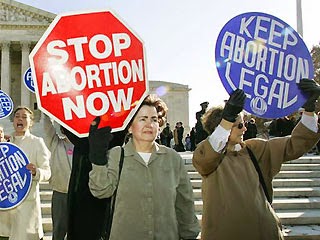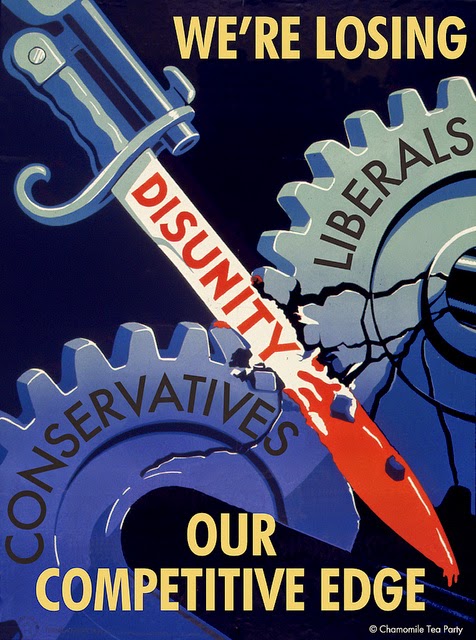Let's be honest. Republicans have never been keen on extending voting rights to all the citizens of this nation. Their reasoning is straightforward. If the poor, the elderly, and the disabled are allowed to vote, they'll vote themselves a big piece of the treasury pie. This will require raising additional revenues to pay for the government services and handouts that this demographic of the citizenry will demand. That, in turn, will cause taxes to go up, and as we all know, only about half of all Americans pay taxes, those being hard-working Republican businessmen -- the job creators -- who need tax breaks for outsourcing jobs overseas.
To claim, as some do, that Republicans are racist because their attempts to disenfranchise poor voters tends to discriminate against African-Americans and Hispanics, is just plain unfair. No one made minorities poor. They made themselves poor by failing to be white.
"Voters were turned away from the polls because their race didn't match the election supervisor's records. But race isn't even on our identification cards, so why would this be an issue at all? I personally had a problem at the polls - I had to be very insistent that I could vote. That happened to me, and I consider myself pretty informed” (Adora Obi Nweze, President of the Florida NAACP, November 4, 2000).
Elderly people have had their chance to vote and now that they've reached an age where they're eligible for Social Security and Medicare, they should stop voting, because they no longer contribute to a vigorous economy. They are on the dole and it's only right that they let people who are still working make the decisions about what elected official is going to eliminate their entitlements.
Now Republicans have nothing against the disabled, per se, but letting them vote seems imprudent, as many of these people are demonstrably challenged when it comes to intelligence, which is demonstrated by them voting Democratic. Furthermore, they are also dependent on things like health care, which hard-working Republicans strongly believe should be the right of everyone to pay for.
It would be difficult for Republicans to pass a constitutional amendment limiting the right to vote to people making over $250,000 per annum, or to simply deny the right to vote to certain select members of society (see above), and so Republicans are ramming voting laws through Republican-controlled state legislatures that accomplish much the same thing, although with some inevitable leakage. These laws require people wanting to vote to produce a government approved identification, preferably stamped with their party affiliation, which would allow precinct workers to quickly determine which IDs are likely to be fraudulent, i.e., those produced by Democratic voters.
In order to assist those intrepid soles attempting to obtain said government approved ID, states passing voter ID laws have issued on-line information for all the poor, elderly, and disabled would-be voters with access to and technical know-how on computers and the Internet. For example, Floridians must show:
- Florida driver’s license showing that you are an organ donor and have donated an organ to a Republican candidate.
- Florida identification card issued by an office of the Department of Highway Safety and Motor Vehicles, which if you live in a predominantly Democratic district, has been closed.
- United States passport showing that you have not visited any socialist countries, Muslim countries, or countries whose national debt is less than ours.
- Debit or credit card, that can be verified as having been used for a contribution to a Republican candidate.
- Military identification accompanied by a statement that you do not have PTSD and oppose repeal of “don’t ask, don’t tell.”
- Student identification with an expiration date, and with confirmation that you are a business major and have never taken a social sciences course.
- Retirement center identification, with a stamp certifying that you have met a death panel.
- Neighborhood association identification for any neighborhood in which the medium income is $250,000, or above.
- Florida public assistance identification that includes a photo of you in the nude.
Florida Governor Rick Scott is going a step further and "purging" the state's voter registration rolls of questionable registrants, despite the Department Justice’s concerns that his plan might actually disenfranchise legitimately registered voters. Apparently, the risk of dropping a few thousand questionable (read Democratic) voters is worth the reward -- delivering the state to the GOP in November.
Although in-person voter fraud, the type of fraud photo ID is meant to curtail, is vanishingly rare (.0004%, as measured), Republicans believe strongly that prophylaxis in our voting laws, if not in our bedrooms, is absolutely necessary. Thus, the plethora of voter ID laws, which Republicans feel are especially important in swing states, like Florida and Michigan. They feel that if they can suppress the vote there -- I meant to say, authenticate the vote there -- and perhaps in Pennsylvania and Wisconsin, well who knows what might be achieved? A one-term Obama presidency?
Hasn't that been the objective all along?



















